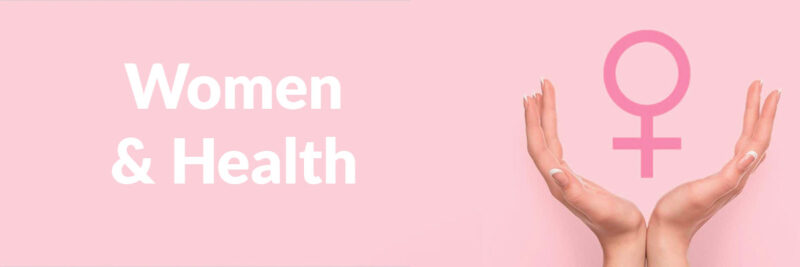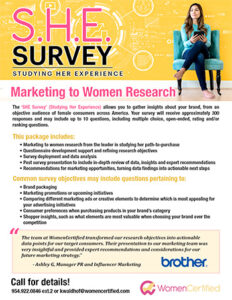Research is what we do. From general market research on women’s shopping and lifestyle behaviors and trends, to industry-specific research studies, our team at WomenCertified Inc. likes to keep our finger on the pulse. Below are research statistics that constitute a statistically significant sampling of women across America.

When it comes to writing reviews online:
- 35% of women almost never write reviews,
- 28% of women write about negative and positive reviews equally,
- 35% of women write mostly positive reviews and just post negative reviews if it’s a really terrible experience/product
- 2% of women write mostly negative reviews and just post positive reviews if it’s a really amazing experience/product
When looking at starred reviews on sites like Amazon:
- 4% only look for products with the full 5 star rating
- 10% only look for products with 4.5 star ratings and above
- 30% only look for products with 4 star ratings and above
- 10% only look for products with 3.5 star ratings and above
- 3 % only look for products with 3 star ratings and above
- 32% pay attention to starred reviews but don’t have a ‘cutoff’ requirement
- 12% don’t pay a lot of attention to starred reviews
Excluding food shopping, the reasons women prefer to do in-store shopping versus online shopping are as follows:
- 41% of women enjoy the experience of perusing and shopping for things in-store
- 14% of women say it gives them an excuse to get out of the house
- 58% of women like to see and feel things in person
- 4% of women enjoy the ability to speak with store associates about products
- 34% of women like being able to have the product in hand instantly upon finding it
- 10% of women say shopping in-store is a good excuse to do something fun with a friend/family member
- 11% say they would almost always prefer to do their shopping online
When a blog mentions a product that a woman is interested in, here is typically what women do next:
- 23% of women usually click on the link to check it out further and purchase it from that source if it seems trustworthy.
- 19% of women immediately go to Amazon.com to check out the reviews, compare pricing and buy it.
- 2% of women immediately go to Walmart.com to check out reviews, compare pricing and buy it.
- 42% of women go to a search engine (i.e. Google), to look up the product and then go from there.
- 3% of women search for the product/company on social media to get a better feel for what she’s looking into buying.
When trying to decipher between two products at a similar price in a store setting, approximately 70% of women say that if another woman walks by and recommends one product over another based on her experience, she will probably choose the one that was recommended. More specifically, 11% of women say it would be ‘Extremely Likely’ that she would choose the recommended products, as it helped her come to a decision, while 59% of women say it would be ‘Likely’ to choose the recommended product. The remaining 30% of women say it is ‘Neither Likely Nor Unlikely’ as the other woman’s recommendation makes no difference to her.
When asking women to rank the primary reasons they tend to make impromptu visit to the store, the 4 answer choices below were ranked as follows:
- 77% of women say that “needing a missing food item” is the #1 reason for an impromptu store visit
- The second most likely reason for an impromptu store visit is to “purchase an OTC medication”, with 12% of women choosing this option as their #1 reason, and 50% of women choosing it as their #2 reason.
- Following the necessity for a mission food item or OTC medication, “needing a sugary sweet treat” was the 3rd most likely reason for an impromptu visit, followed closely by “needing a last minute gift”.
When making a typical impulse purchase in a store (not related to food shopping):
- 9% of women say that they don’t make impulse purchases
- 30% of women say that they estimate spending up to $10 on impulse purchases
- 32% of women say that they estimate spending between $10 – $20 on impulse purchases
- 18% of women say that they estimate spending between $20 – $30 on impulse purchases
- 9% of women say that they estimate spending between $30 – $50 on impulse purchases
- Less than 5% of women estimate spending over $50 on impulse purchases
Women were asked to select from a comprehensive list, their top 3 reasons for making impulse purchases in a store:
- 82% of women say that they do so because they see something on sale, as clearance or BOGO offer.
- 33% of women say that they do so because they find little gifts for friends and family.
- Among the most popular remaining answer choices, 19% of women choose finding fashion items they like (handbags, clothing, jewelry); 18% of women chose finding cleaning supplies they need (hand soap, detergent, sanitizer); 18% of women chose finding holiday decor and gifts; 15% of women chose finding health and wellness items (vitamins, bandages, protein drinks); 16% of women chose finding home decor items; and 14% of women chose grabbing things from the cashier aisle (candies, magazines, drinks).

- 62% of women say that they procrastinate when it comes to taking care of their own health.
- The #1 reason why women procrastinate on their own health is because they are ‘busy taking care of other people’s health (i.e. spouse, kids, parents, etc.)’. (30% of women)
- The second most common reason women procrastinate on their health is because they ‘get anxious and worry about bad news’. (27% of women)
- The third most common reason women procrastinate on their health is because they attribute it to simply being ‘a procrastinator’. (27% of women)
- 11% of women procrastinate on their health because they ‘don’t have time’.
- 11% of women procrastinate on their health because they ‘keep forgetting to schedule appointments’
- 45% of women have delayed or canceled doctors appointments and/or screenings due to the COVID pandemic. Of those 45% of women, almost half of them are dealing with major health issues such as heart conditions, cancer, respiratory issues or diabetes, delaying their appointments/screenings despite their health concerns.
In regard to women’s outlook of hospitals as of December 2021:
- 52% of women think hospitals are in a better place with regard to managing COVID, but are still somewhat weary about visiting a hospital, and would only go if it was necessary to be admitted or to visit someone close to them.
- 25% of women feel things have gotten significantly better with regard to managing COVID, and feel less apprehensive if they had to visit or be admitted to a hospital.
- 23% of women don’t think the hospitals have made enough improvements with regard to COVID to make them feel more comfortable than they use to about visiting a hospital or being admitted.
Outside of COVID-related illness, 81% of women say ‘Infection/Sepsis’ is among their top 3 concerns after staying (or having a loved one stay) at a hospital after a surgical procedure; 45% say surgical site infection; 44% say pain management; 30% say blood clots; 24% say wrong medication administered; 22% say wrong diagnosis; 20% say pneumonia; 13% say falling and slipping. Among the remaining answer choices (bed sores; organ failure; excessive bleeding), none of these options had more than 8% of women choosing it among their top 3 concerns.
- 93% of women value industry awards in healthcare
- 37% say that while they don’t try to look for accreditations or awards specifically, they appreciate seeing them as it makes them feel more confident in making the best choices.
- 30% of women say industry awards are important for healthcare facilities because it provides healthy competition to ensure hospitals and facilities continue working diligently to meet the highest standards and thereby ‘earning’ there recognition.
- 26% say that they look for accreditations and awards that hospitals and healthcare facilities have earned to help make an informed decision about choosing the best.
- 26% say that industry awards are important for choosing healthcare facilities and appreciate that they tend to be easy to understand (i.e. ‘Best in Patient Safety; Best Orthopedic Surgery’, etc.)
Sources:
Consumer Behaviors Survey, WomenCertified, Dec. 2021








